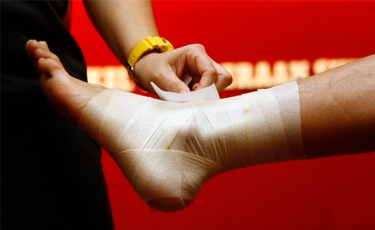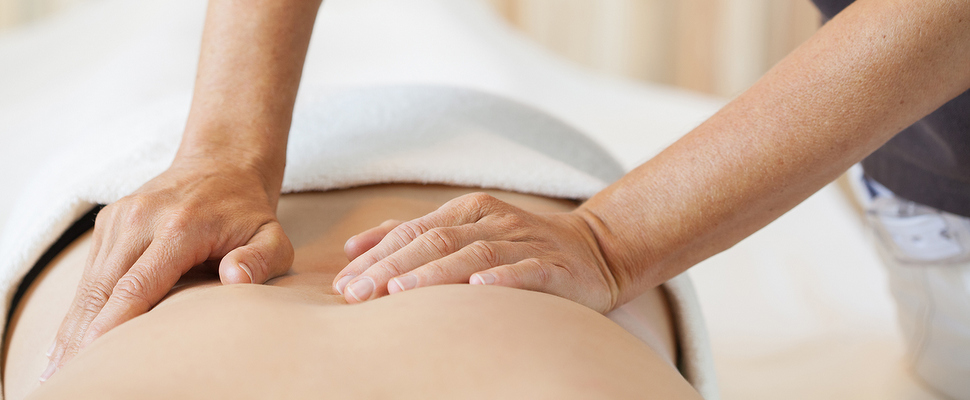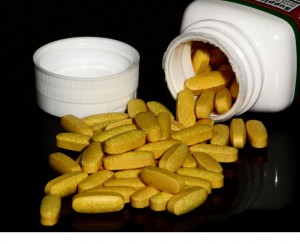Last updated on March 9th, 2022 at 05:31 pm
For those who work hard to keep fit on a regular basis, suffering a sports injury can be a devastating blow. In addition to battling with frequent bouts of physical pain, this sudden lack of physical activity can be very emotionally draining and this poor state of mind can inevitably impact the rate of recovery. In a bid to alleviate the physical and psychological after-effects of a sports injury, it can be tempting to look to quick-fix remedies to treat your condition, but sport injuries are rarely treated in a matter of weeks. Recovering from a sports induced injury can be a long-term process but the recovery period can be doubled if you marry an impatient attitude with the wrong course of treatment. If you find yourself suffering from post-injury pain, the following treatments can serve you well in the recovery process.
Massage Therapy
Sports massage therapy is a great form of treatment for post-injury pain. Not only can a thorough massage session ease dull joint and muscle pain, it can also serve as an effective stress-reliever. Stress and anxiety can play a big part in recovering from a sports injury so a regular session with a professional sports masseur can be one of the best relaxation techniques available to you. During the initial stages of your rehabilitation, beginning and ending the day with a warm-down activity such as massage or yoga therapy can help detoxify the body and gently revive muscles that have been out of action.
A Balanced Diet
It’s simple but sound advice – a well-balanced diet will serve your body and mind very well during the healing process. An apple a day may not be able to prevent future injuries from occurring but consuming your five-a-day can greatly lower your risk by giving your body the energy it craves. Stick to a strict regimen of daily fruit and veg following on from a sports injury. Repair the body with high-protein and anti-inflammatory foods such as legumes and oily fish. Fibre is also a key player in tissue repair and protecting the body’s cells from further damage so keep your home stocked with plenty of fresh fruit and dark green vegetables such as green beans and spinach.
Nutritional Supplements
While supplements are no substitute for a regular and natural source of your vital nutrients, they can be used to combat pain in key areas. You may find that certain supplements can specifically target the pain brought on by your sports injury. Vitamin C and Zinc for example are known to assist in fracture heals and tissue repair whilst Magnesium supplements and Bioflavonoids can greatly reduce inflammation and swelling – a major role in the initial stages of recovery. Always check with your local GP before deciding to take any supplements. Your doctor may be able to advise which may be most suited to you based on your age and unique medical history to prevent the risk of any severe side effects. The emotional state of someone suffering with particularly severe sports injuries can sometimes lead to the patient taking inappropriate action. Nutritional supplements should only be taken as advised and never something to rely upon consistently as a means to alleviate your psychical and mental state. Many athletes have been known to take drugs to enhance their performance and focus but this is highly damaging to your health and should never be considered as either a short or long-term solution to help you stay on top of your game. Medication cannot be solely relied upon to numb the pain and emotional side effects brought on by a sports injury such as depression and anxiety. If you find yourself over-reliant on prescription supplements or any kind of medication, it may be wise to seek help for your addiction before it has a chance to have a considerable impact on your recovery.
Sports Psychologist
Having a professional Sport Psychologist on hand can be essential to morale during rehabilitation and can have a remarkable effect on your mental outlook long after your psychical recovery. It’s easy to forget how important mental wellbeing can be to the recovery process. How a patient mentally responds to a sports injury can have a significant effect on how the body chooses to respond to rehab and recovery. The after effects of a sports injury are commonly linked with feelings of stress and depression and like most things, leaving this to go untreated will only hold you back from making any clear physical progress. Sports psychology professionals can help treat patients in any given circumstance from distance coaching and mental training to face-to-face motivational techniques. Pain is a combination of biological, physical and emotional factors and cannot be remedied with medication and exercise alone. Most cases of chronic pain are often caused by inappropriate nervous system activity rather than actual tissue or muscle damage so don’t ever be too quick to underestimate your mental health as this may be the underlying cause for ongoing physical pain.
This blog was kindly contributed by Jennifer Thomas
Sources
1) Healthy.net (2014) ‘What doctors don’t tell you – the best supplements for healing’ http://www.healthy.
2) Livestrong.com (2011) ‘The psychology of sports injuries’ http://www.
3) Pponline.co.uk (2005) ‘How sports psychology can be used..’ http://www.pponline.
4) Eatmoreimprove.com (2011) ‘Understanding pain when dealing with injuries’ http://www.eatmoveimprove.
5) Uksportsmassage.co.uk (2014) ‘UK Sports massage introduction’ http://www.
6) Sportsinjuryclinic.net (2014) ‘Sports Injuries’ (Overview) http://www.










